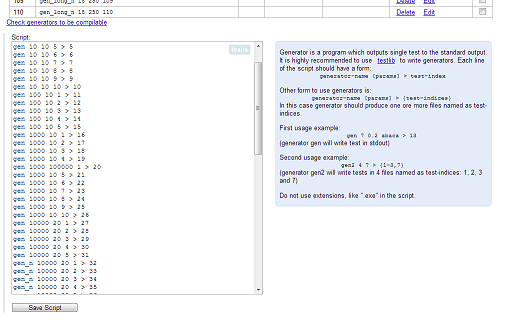Hello everyone!

We invite you to participate in a new team programming contest Asseco Programming Marathon24 Gdynia 2013. In the contest teams of three can participate. There is no limit concerning the age or education of contestants. Also there is no limit in equipment, programming languages or materials you can use during the contest.
The contest consists of two stages. If you have participated in Challenge24, you should be more or less familiar with the format.
The first stage are qualifications, which will start on 19th October 2013 at 9:00 CEST and will last for 5 hours. There will be 5 algorithmic problems, to which 10 test cases will be provided. You only submit outputs to the tests and you get immediate feedback on your score. Some problems will have only one answer, and some will be optimization ones.
No more than 30 teams with the highest scores will qualify for finals. They will take place in Pomeranian Science and Technology Park in the city of Gdynia in Poland. Finals will begin on 30th November 2013 at 11:00 CET and will last for 24 hours. There will be 3 problems, which will require you to write a program communicating with the contest server through the TCP/IP protocol. A sample problem could be controlling a team of units which compete with other teams on a virtual arena. On the contest site you will be provided with table, chairs, lighting, one power socket and one network plug. Any other equipment has to be brought by you. Organizer will provide accommodation before finals (Friday/Saturday) for every participant of the finals. Organizer does not pay for or provide transportation to Gdynia.
For three teams with the highest scores in finals there are prizes amounting to over 30 000 PLN in cash.
The problems will be prepared by Tomasz Idziaszek monsoon and Wojtek Nadara Swistakk. Even if you don't have a team of three, you are still able to solve problems for fun during qualifications. Just register yourself and create a single-member team.
For more information or sample problems visit our site: www.marathon24.com. Keep in mind that the registration closes on 17th October 2013.
Good luck and have fun!













